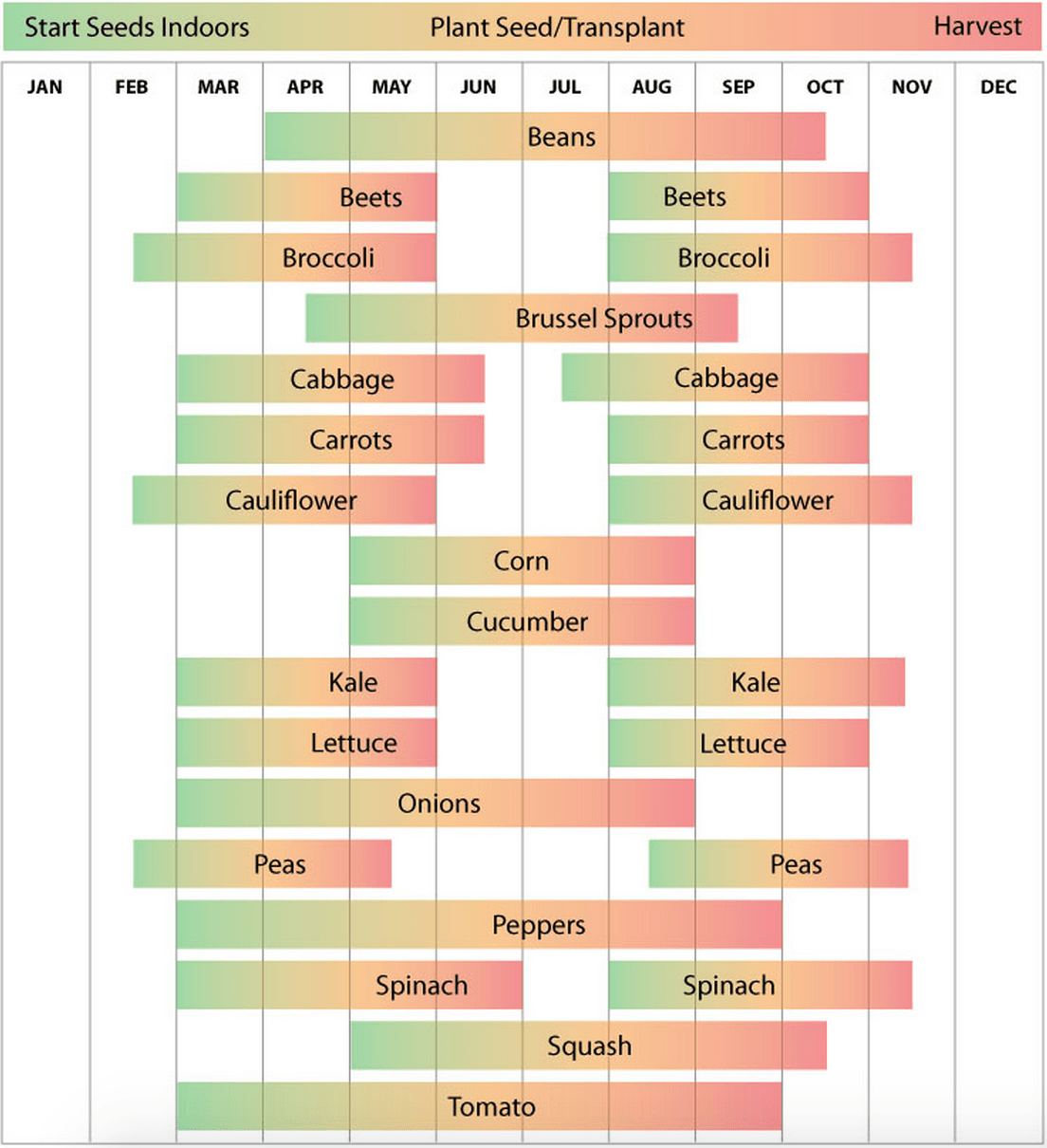Spring's First Bounty: Unlock the Secrets of Early Vegetable Gardening
Is your green thumb itching to get started as soon as the last frost whispers goodbye? The promise of fresh, homegrown vegetables is a powerful motivator, and spring offers the first opportunity to turn that dream into a reality. Planting the right vegetables early in the season can extend your harvest and provide you with delicious produce weeks ahead of schedule. Let's dive into the world of early spring gardening and unlock the secrets to a bountiful harvest.
Imagine biting into a crisp radish pulled straight from your garden, weeks before your neighbors. That's the magic of understanding which vegetables thrive in cooler temperatures and how to give them the best possible start. Choosing the right varieties and employing smart gardening techniques are key to success with early spring vegetables. This guide will equip you with the knowledge to transform your garden into a vibrant early-season oasis.
Historically, planting early spring vegetables has been crucial for food security, bridging the gap between winter stores and the main summer harvest. From ancient civilizations to modern homesteaders, understanding the nuances of early planting has provided sustenance and a welcome burst of fresh flavors after a long winter. The practice continues to be relevant today, allowing gardeners to maximize their yields and enjoy the fruits (and vegetables) of their labor sooner.
One of the main challenges of early spring gardening is navigating unpredictable weather. Frost, fluctuating temperatures, and excessive rain can all impact the success of your early crops. Understanding how to mitigate these risks, from choosing hardy varieties to utilizing protective measures like row covers, is essential for a thriving early garden. Proper soil preparation, including amending for optimal nutrient levels and drainage, is another critical factor in ensuring healthy plant growth.
So, what exactly qualifies as an "early spring vegetable"? These are typically cool-season crops that can tolerate, and even thrive in, cooler temperatures and even light frosts. Think leafy greens like spinach and lettuce, root vegetables like radishes and carrots, and brassicas like kale and broccoli. These hardy plants can be started outdoors as soon as the ground can be worked, often several weeks before the last expected frost date.
One major benefit of planting early is, of course, an earlier harvest. Imagine enjoying fresh salads packed with homegrown greens weeks before your neighbors. Early planting also allows you to extend your growing season, giving you more time to enjoy fresh produce throughout the year. Finally, by getting a head start, you can often avoid some common garden pests and diseases that become more prevalent later in the season.
To create your own early spring garden, start by selecting your desired vegetables. Research your local frost dates and choose varieties suited to your climate. Prepare your soil by adding compost and other amendments to improve drainage and nutrient content. Start seeds indoors a few weeks before your last frost date or sow seeds directly outdoors once the ground can be worked. Consider using row covers to protect young plants from unexpected cold snaps.
Recommendations: Check out the Farmer's Almanac for specific planting dates in your region.
Advantages and Disadvantages of Early Spring Planting
| Advantages | Disadvantages |
|---|---|
| Earlier harvest | Risk of frost damage |
| Extended growing season | Unpredictable weather |
| Potential to avoid pests and diseases | Requires more attention and monitoring |
Five Best Practices: 1. Choose hardy varieties. 2. Prepare soil properly. 3. Start seeds indoors or direct sow. 4. Use row covers. 5. Monitor weather conditions.
Five Real Examples: 1. Spinach. 2. Lettuce. 3. Radishes. 4. Peas. 5. Kale.
Five Challenges and Solutions: 1. Frost - use row covers. 2. Pests - use companion planting. 3. Diseases - ensure good air circulation. 4. Slow growth - use a soil thermometer to ensure optimal soil temperature. 5. Poor germination - check seed viability before planting.
FAQ: 1. When can I start planting? - Check your local frost dates. 2. What are the easiest vegetables to grow? - Radishes and lettuce are good choices for beginners. 3. Do I need to start seeds indoors? - Not all vegetables require starting indoors. 4. What are row covers? - Fabric covers that protect plants from frost. 5. How do I prepare my soil? - Add compost and other amendments. 6. What are some good companion plants? - Marigolds deter pests. 7. How often should I water? - Keep soil consistently moist but not waterlogged. 8. When can I expect to harvest? - Check the seed packet for estimated days to maturity.
Tips and Tricks: Succession planting, sowing seeds every few weeks, will ensure a continuous harvest. Consider using raised beds or containers for better drainage and warmth. Mulching around plants helps retain moisture and suppress weeds.
The journey to a thriving early spring garden begins with understanding the nuances of early planting. By carefully selecting the right vegetables, preparing the soil, and employing protective measures, you can unlock the potential of your garden and enjoy a bountiful harvest weeks ahead of schedule. The rewards of fresh, homegrown vegetables, bursting with flavor, are well worth the effort. Start planning your early spring garden today and experience the satisfaction of savoring the first taste of spring, straight from your own backyard. Embrace the challenges, learn from each season, and enjoy the ongoing process of nurturing life from tiny seeds to vibrant, delicious vegetables. Don’t just dream of fresh spring produce – make it a reality.
The language of fandom exploring bts copy and paste culture
Grounding your space the art of a slip free mat
Unlocking the mystery twisty puzzle nyt crossword clues














